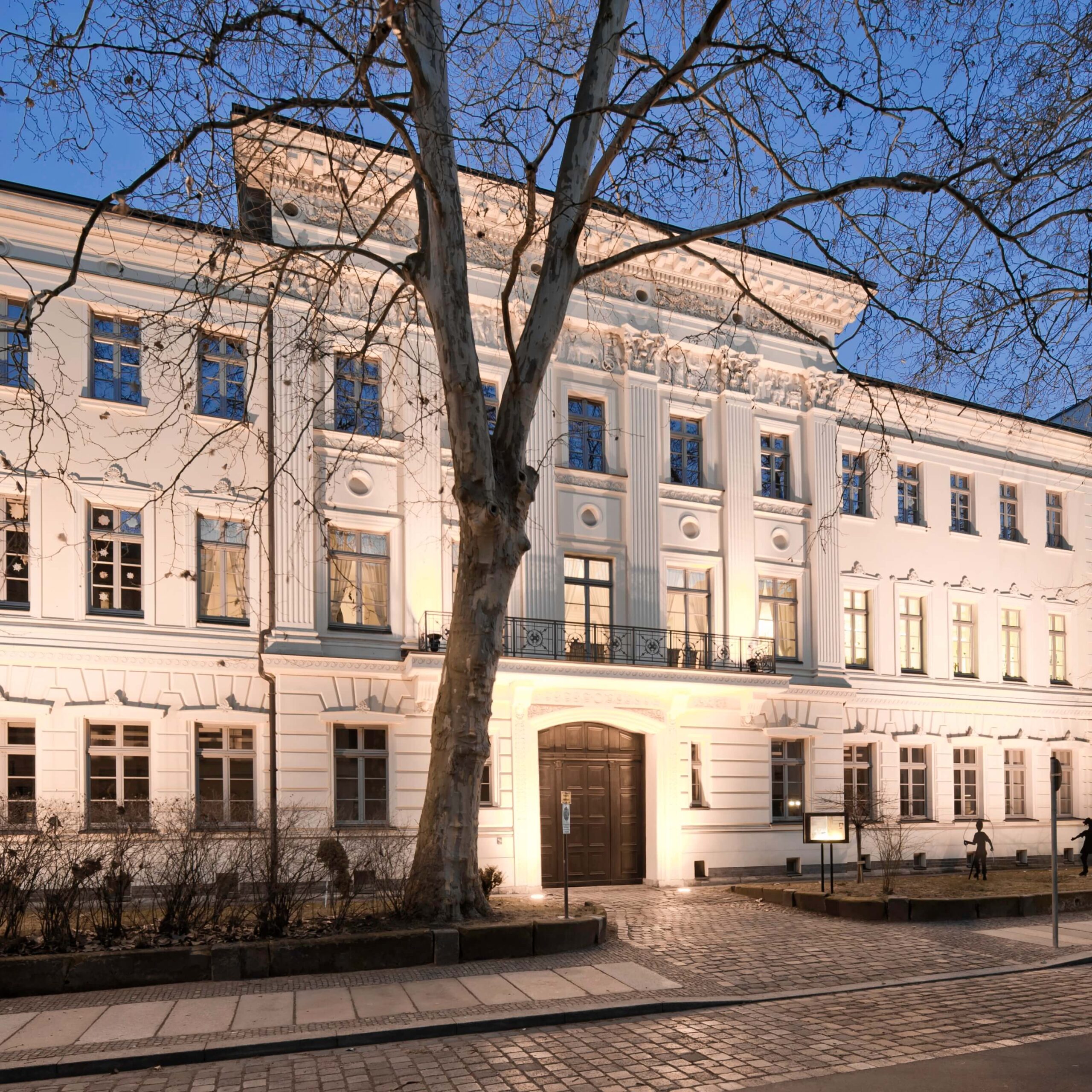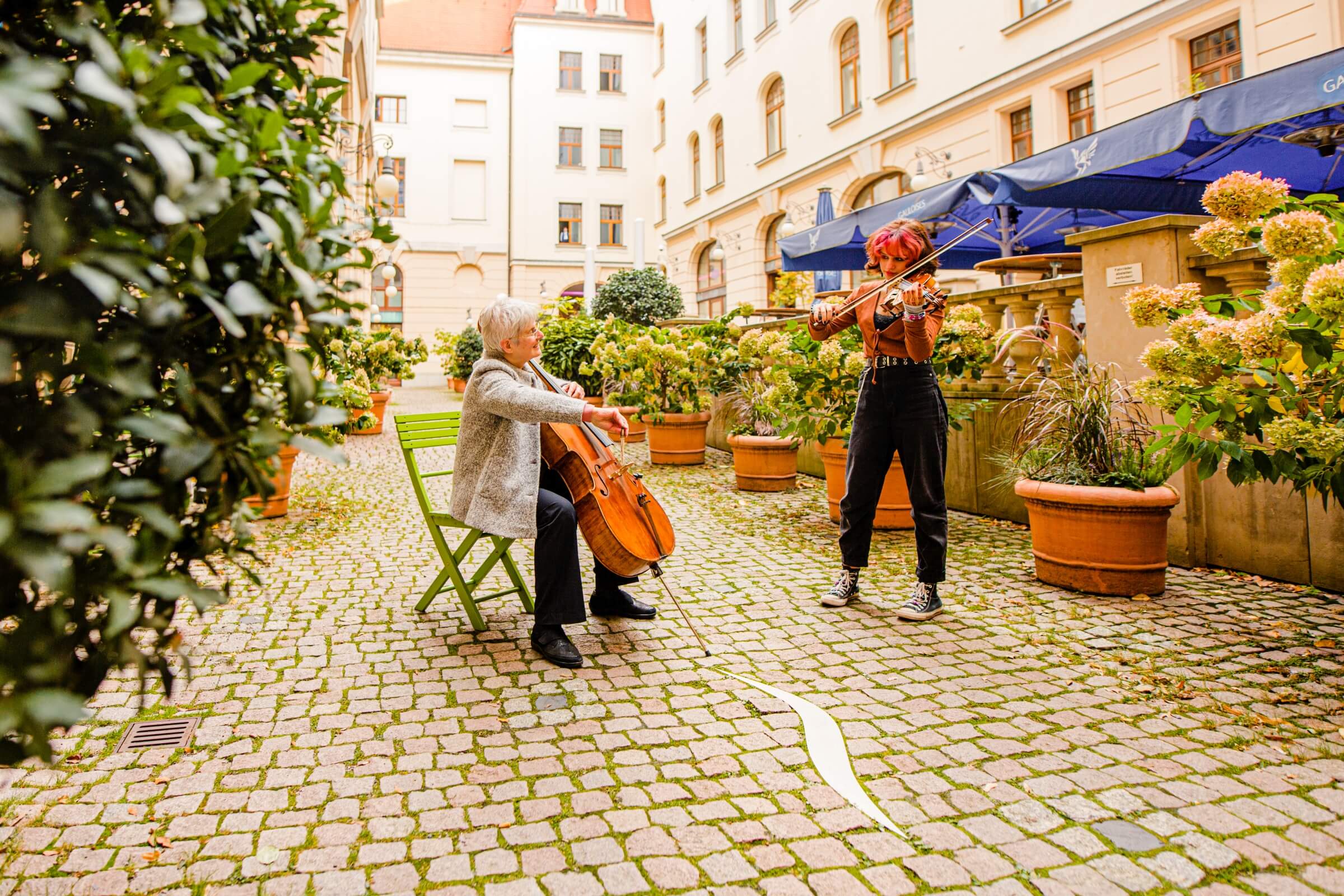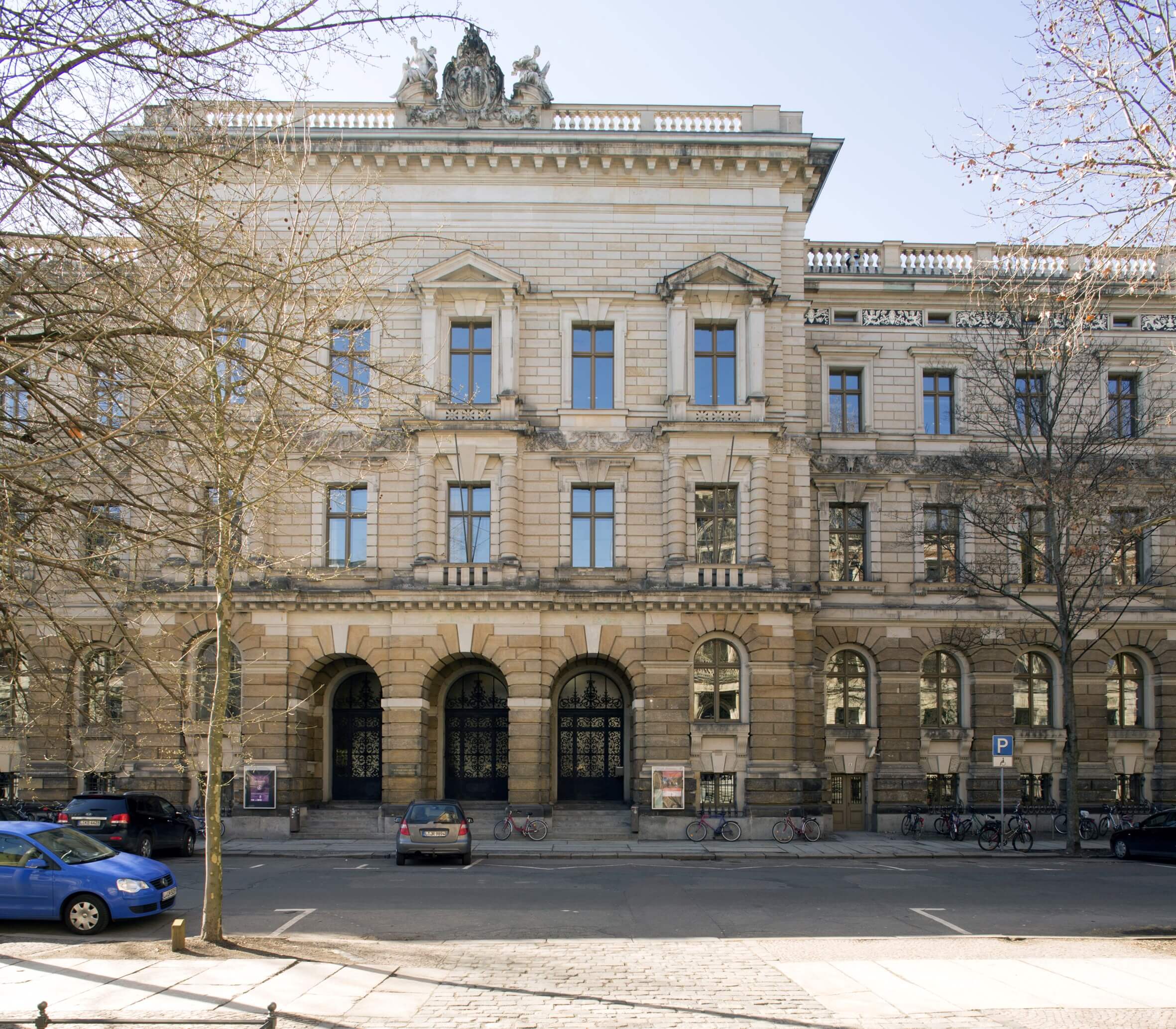This website uses cookies so that we can provide you with the best user experience possible. Cookie information is stored in your browser and performs functions such as recognising you when you return to our website and helping our team to understand which sections of the website you find most interesting and useful.
Leipzig Musical Heritage



The EHL Site
In the streets and squares, in churches, concert halls and the many authentic locations where famous musicians worked and lived: the fascinating power of music is everywhere in the city of Leipzig. Leipzig’s Musical Heritage Sites is a constellation of nine historical buildings in the centre of the city. They are historical “lieux” where composers such as Johann Sebastian Bach, Felix Mendelssohn Bartholdy, Clara and Robert Schumann as well as Richard Wagner, Edvard Grieg, and Gustav Mahler created some of their most outstanding works. Moreover, the sites represent the model of an enlightened European urban citizenry that actively participates in the city’s cultural and political life.
The actual sites are: St. Thomas Church, St. Nicholas Church, Old St. Nicholas School, Leipzig Bach Archive, Mendelssohn House, University of Music and Theatre “Felix Mendelssohn Bartholdy” Leipzig, Schumann House, Grieg Memorial Centre, and Leipzig Gewandhaus. Together they represent the unique musical tradition of Leipzig as a City of Music, and as a whole constitute its musical heritage. The sites are interconnected by the “Leipziger Notenspur” (Leipzig Music Trail), a cultural tourist route along historic paths through the city as the connecting element.
Leipzig does not only have a great musical history, in which more than 500 composers lived and worked over the centuries. Here the tradition is still alive. Leipzig’s Musical Heritage Sites honour its musicians annually with high-profile programs that thrill Leipzig citizens and guests from all over the world.
European dimension
The European significance of Leipzig’s Musical Heritage Sites is on two levels:
Firstly, the sites represent the historical evolution of European music in Leipzig over eight centuries and the strong associations with outstanding composers. Moreover, as a renowned European City of Music, many international students came to the city and were trained at the former Conservatory (today: University of Music and Theatre “Felix Mendelssohn Bartholdy” Leipzig). They afterward initiated an acclaimed music tradition in their European home countries (Denmark, Great Britain, Ukraine, Norway, Czech Republic, Serbia, Spain, Lithuania, Bulgaria). This is only one example, to show the European network of musicians, which was unfolded in Leipzig and which is active today.
Secondly, Leipzig’s musical identity is also strongly associated with European values of freedom and democracy. The sites represent the model of an enlightened European urban citizenry that actively participates in the city’s cultural and political life. To name some outstanding examples: In 1989, St. Nicholas Church became the centre of peaceful revolt against the socialist rule. Furthermore, Kurt Masur, Kapellmeister at the concert hall Leipzig Gewandhaus, supported peaceful demonstrations of the anti-government movements in Leipzig. The protests were part of the events leading up to the fall of the Berlin wall and the enforcement of democracy in East Germany.
The organization
A huge part of Leipzig Musical Heritage Sites remembers life and work of composers, the institutions function as museums, archives, venues for cultural activities, as well as organizers of renowned music festivals. A decisive part of their activities is to develop programs for younger generations.
Leipzig’s musical history dates back more than 800 years. Leipzig’s Musical heritage Sites stand for that history, at the same time they are outstanding and vibrant cultural institutions today with a decisive impact on Leipzig’s citizenry and guests from all over the world.
St. Thomas Church and St. Nicholas Church have been the working places of Johann Sebastian Bach, who created the majority of his outstanding compositions in Leipzig and worked with the world-acclaimed St. Thomas Boys Choir. Today, the churches are still vibrant as religious and musical centres. In addition, St. Nicholas Church is strongly connected to the peaceful revolution in 1989 and dedicates its work to promote the spirit and courage of the anti-government movement to younger generations.
The concert hall Gewandhaus Leipzig is the home of the world-acclaimed Leipzig Gewandhaus Orchestra. The Gewandhaus Leipzig offers an outstanding music program; it is responsible for renowned music festivals, such as “Mahler 2023” and regularly stages innovative projects, such as “democracy days” or “democracy concerts”, which reach a wide public and address the role, the institution was having during peaceful revolution in 1989.
Musical students from all over the world enjoy their musical studies at the former Conservatory (today: University of Music and Theatre “Felix Mendelssohn Bartholdy” Leipzig). Founded in 1843 by Felix Mendelssohn Bartholdy, it is the oldest university school of music in Germany. Besides its excellent training, it offers annually more than 600 public concerts and events. The programs and the international students contribute to Leipzig’s cosmopolitan atmosphere.
Leipzig possesses a true treasure of unique and authentic places that give testimony to its history and presence as a European City of Music. In order to share and transmit that heritage to the public, the “Leipziger Notenspur” (Leipzig Music Trail) has been initiated in 2012. The tourist trail constitutes a route system of paths connecting all mentioned sites and providing information and activities in the public sphere.
